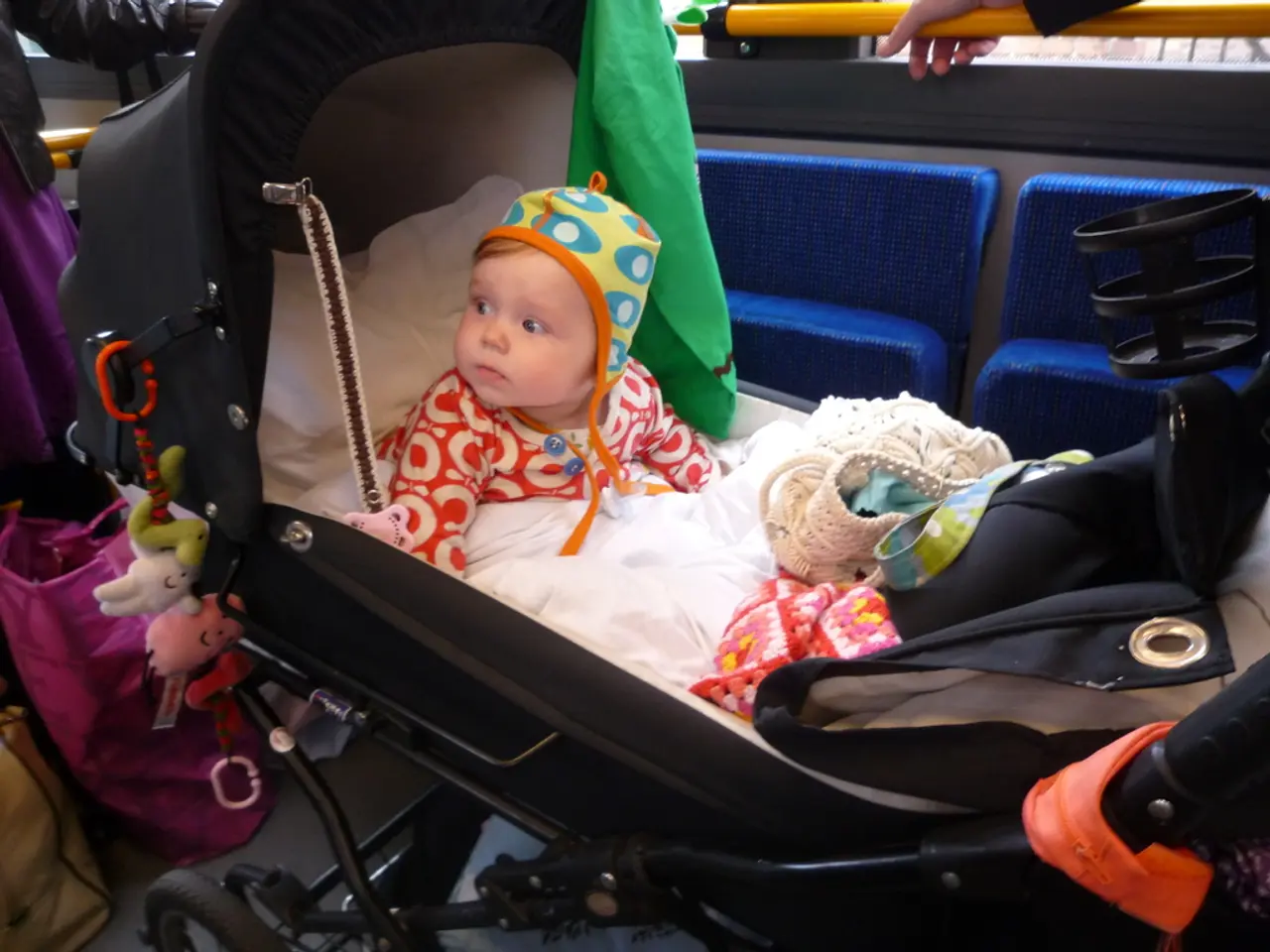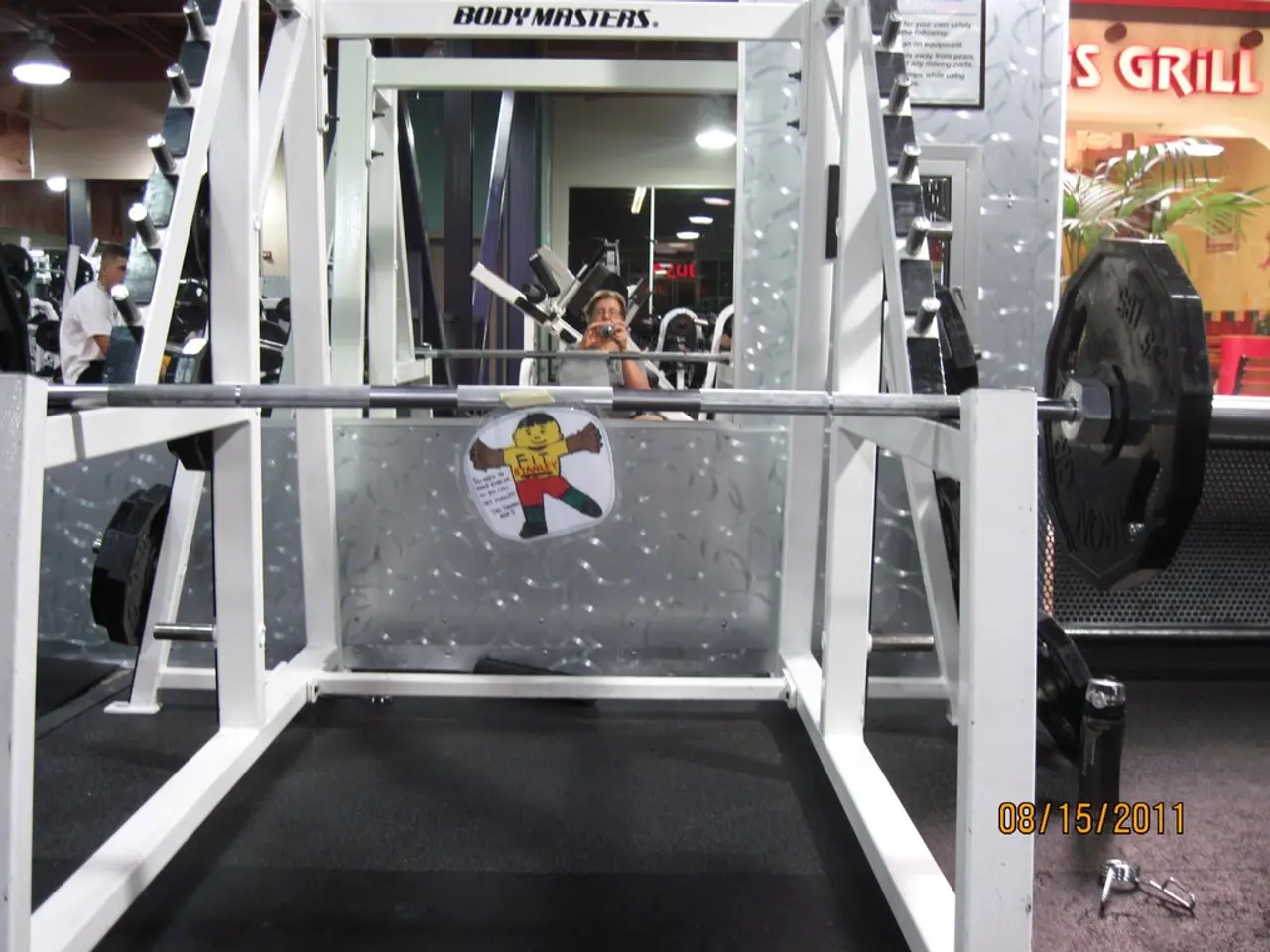Safety for Infants in Vehicles: A Comprehensive Guide for Nigerian Parents
In Nigeria, while there are no explicit, detailed legal requirements or regulations publicly documented for car seats specifically for babies and young children, it is crucial for parents and caregivers to prioritise safety based on global best practices.
The Federal Road Safety Corps (FRSC), responsible for traffic laws and road safety enforcement in Nigeria, does not appear to have publicly specified child car seat laws or mandates on their official platforms or recent updates. However, internationally, research and regulations emphasise the importance of child-sized restraints rather than adult seat belts, as improper restraints can cause injury.
Choosing the Right Car Seat
When selecting a car seat, consider the reputation of the brand and read reviews from other parents to gain insights into the quality and performance of the car seat. Essential safety features for car seats include a five-point harness, side-impact protection, and energy-absorbing materials. Car seats are designed to accommodate specific age groups, ensuring optimal protection for babies at each stage of their development.
Proper Installation and Use
Proper installation and use of the car seat are paramount. The safest spot for a car seat is always in the backseat of the car, and it should be facing the rear until the baby is at least 2 years old. Buckling up the baby correctly involves using a car seat that is appropriate for their size and weight, making sure the car seat is properly installed and securely fastened, and checking that the straps are snug and the harness is at or below the baby's shoulders.
It is crucial to check if a car seat is compatible with the vehicle before purchasing it. Regularly inspect and maintain the car seat by checking for signs of wear and tear, ensuring that all buckles, straps, and harnesses are in good working condition, and keeping the car seat clean by wiping it down with a mild soap and water solution.
Safety Reminders
Avoid dangerous practices such as placing the car seat on the front passenger seat, especially if it has airbags, using second-hand or expired car seats, using accessories that are not approved by the car seat manufacturer, and using bulky clothing or blankets under the harness straps.
To ensure safety, educate caregivers and relatives on car safety by showing them how to properly install and buckle up the car seat, emphasising the importance of following car safety guidelines at all times, and regularly reminding them about car safety measures to maintain consistency.
For airline travel within or to/from Nigeria, infants typically must be in approved restraint systems or car seats if a separate seat is purchased. For the most current legal mandates, contacting or consulting with FRSC or Nigerian transport authorities directly is recommended.
In summary, while there may not be specific legal requirements for child car seats in Nigeria, prioritising safety by using car seats based on global best practices is essential. By following the guidelines outlined above, parents and caregivers can help ensure the safety of their little ones on the road.
- Considering brand reputation and feedback from other parents, along with essential safety features like a five-point harness, side-impact protection, and energy-absorbing materials, is crucial when selecting a car seat for children.
- Proper installation and use of the car seat is paramount, with the safest spot being in the backseat and facing the rear until the baby is at least 2 years old, ensuring the baby is buckled up correctly and the straps are snug.
- Before purchasing a car seat, it's essential to check if it's compatible with the vehicle, inspect and maintain the car seat regularly, and never use accessories not approved by the car seat manufacturer.
- Dangerous practices such as placing the car seat on the front passenger seat, especially if it has airbags, using second-hand or expired car seats, and using bulky clothing or blankets under the harness straps should be avoided for safety reasons.
- Encourage caregivers and relatives to learn how to properly install and buckle up the car seat, emphasizing the importance of following car safety guidelines always.
- For airline travel within or to/from Nigeria, infants may need to be in approved restraint systems or car seats if a separate seat is purchased, so it's advisable to contact or consult with the Federal Road Safety Corps (FRSC) or Nigerian transport authorities for the most current legal mandates.




